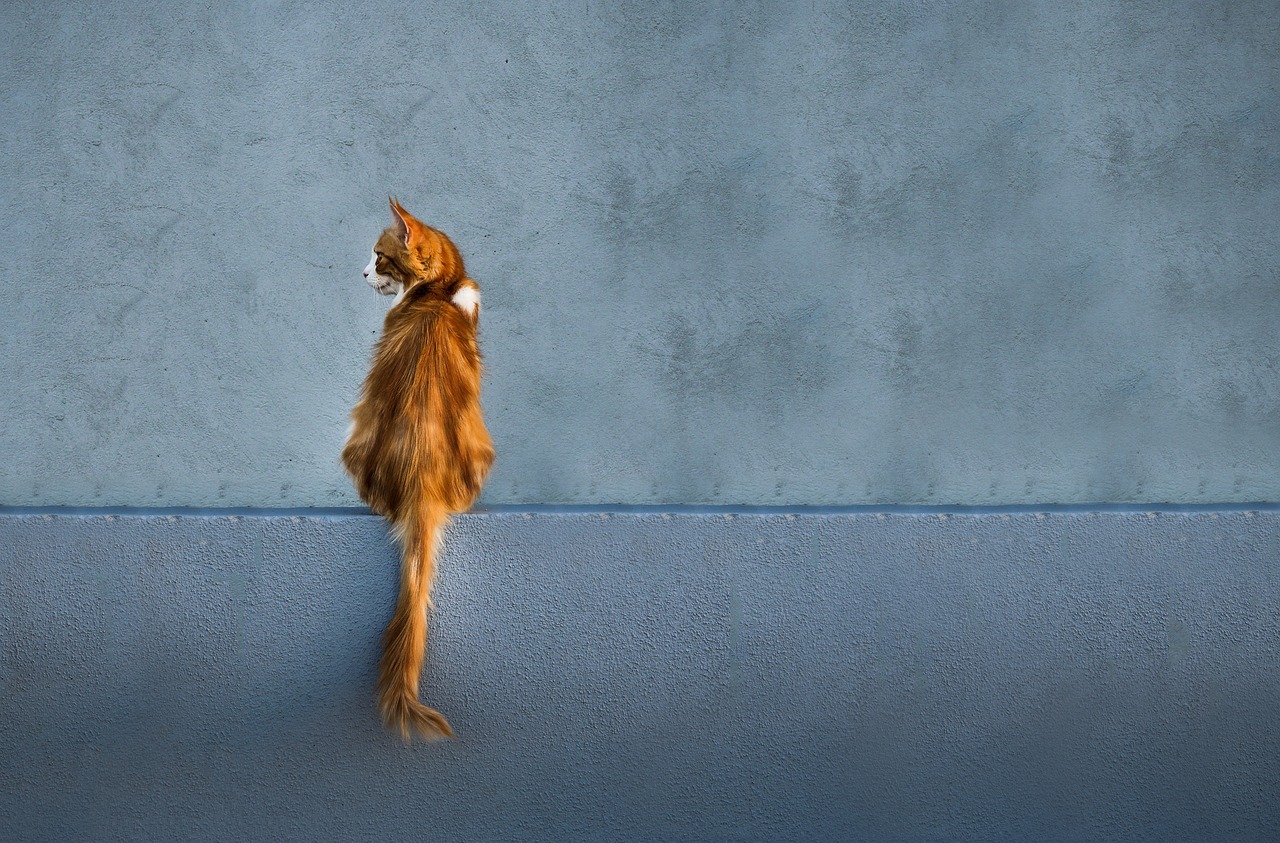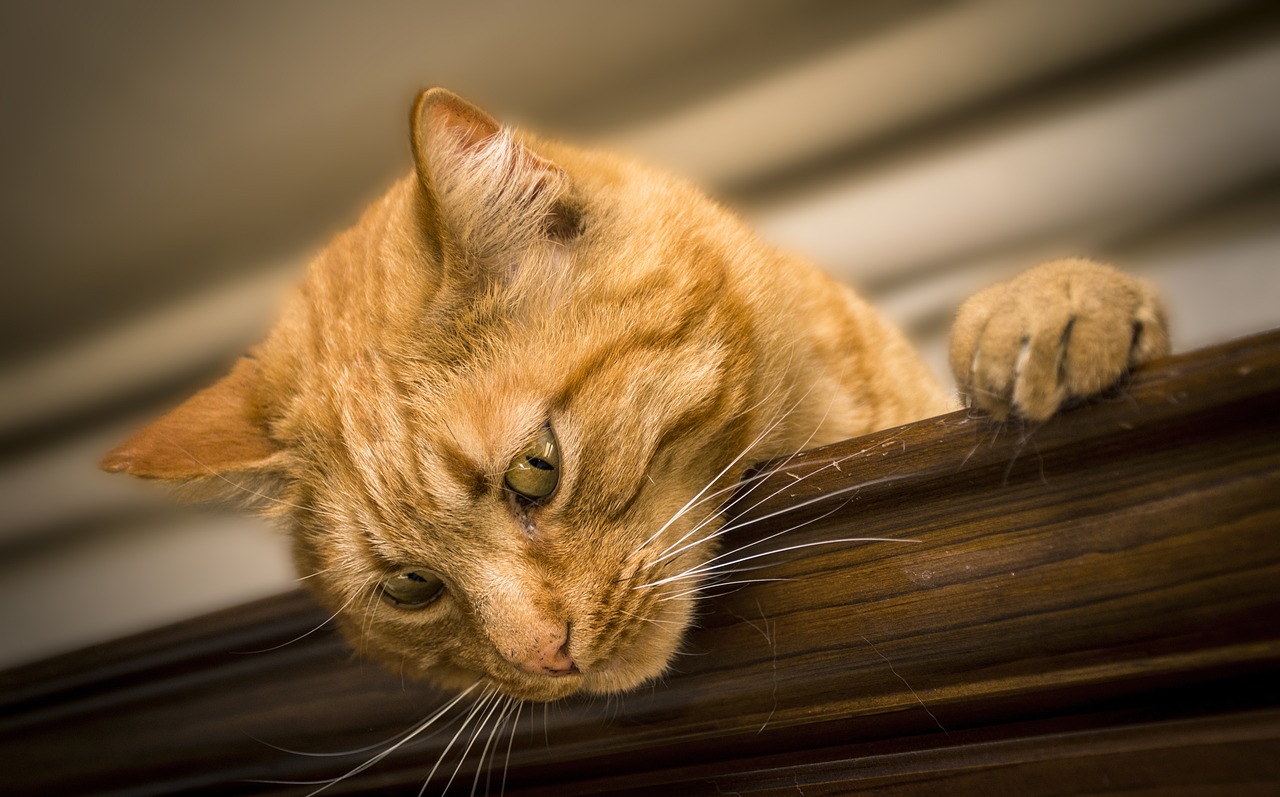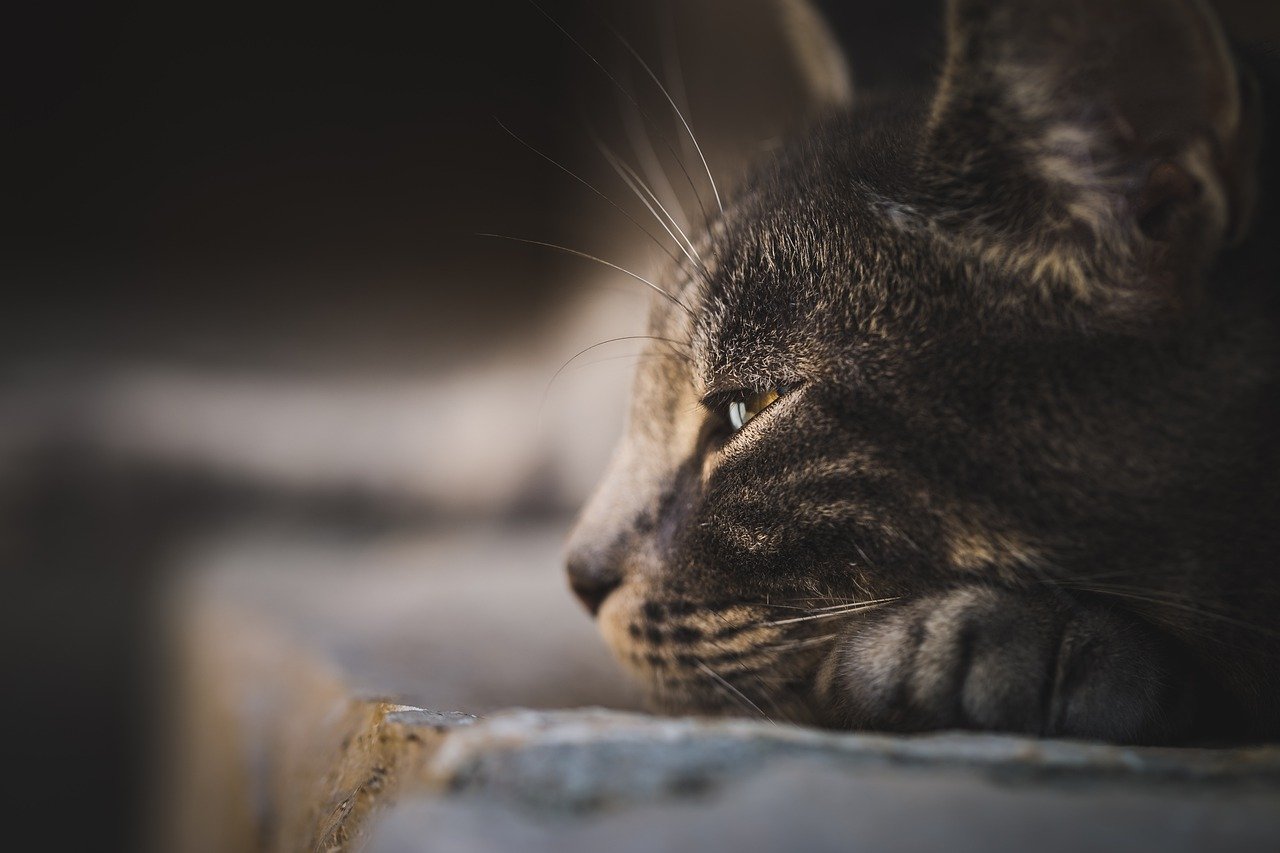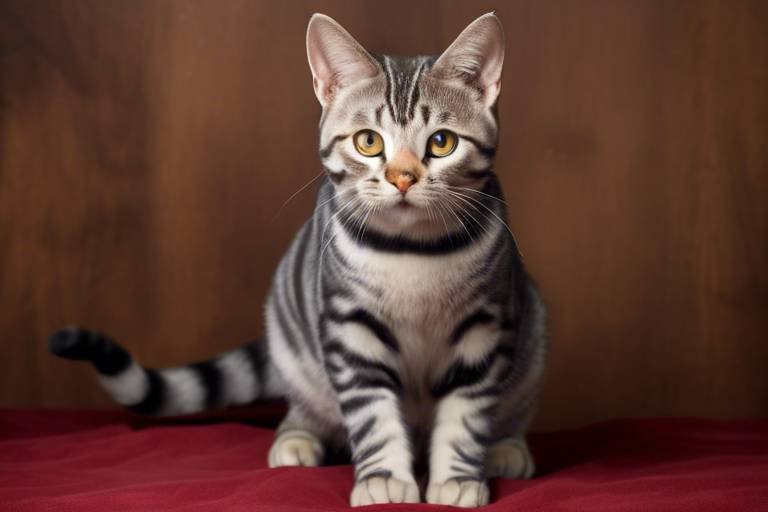The Affectionate Nature of the Cornish Rex
The Cornish Rex is not just another cat; it’s a bundle of joy wrapped in fur! Known for their distinctive curly coat and playful antics, these felines have a personality that shines as brightly as their appearance. If you’re looking for a companion that offers both affection and entertainment, the Cornish Rex might just be your perfect match. Their affectionate nature is one of the key reasons why they have captured the hearts of cat lovers around the world. In this article, we will explore the unique traits that make the Cornish Rex an ideal pet, focusing on their behavior, personality, and the deep bonds they form with their human companions.
These cats are known for their playfulness and curiosity. They often exhibit kitten-like behavior well into adulthood, which means they love to explore, play, and interact with their environment. Imagine having a furry friend who acts like a little comedian, always ready to entertain you with their antics! This playful spirit is coupled with a loving disposition, making them incredibly affectionate towards their owners. Cornish Rex cats thrive on companionship and will often seek out their humans for cuddles and attention.
What makes the Cornish Rex particularly special is their ability to form strong emotional bonds. They are known to follow their owners around the house, often sitting on laps or curling up beside them during quiet moments. This loyalty and need for closeness can be likened to that of a dog, making them unique in the feline world. Their affectionate nature is not just a trait; it’s a lifestyle, and they want to be involved in every aspect of your day. Whether you’re working from home or lounging on the couch, a Cornish Rex will likely be right there with you, providing warmth and comfort.
In addition to their playful and affectionate demeanor, they also possess a highly social nature. Cornish Rex cats generally get along well with children and other pets, making them a great addition to any family. Their sociability can be attributed to their history; the breed originated in Cornwall, England, where they were bred for their unique appearance and friendly temperament. This rich background contributes to their adaptability and eagerness to engage with others, whether it's through play or simply being present.
As we delve deeper into the affectionate traits of the Cornish Rex, we will explore how to effectively bond with them, the importance of socialization, and the behaviors that showcase their love. By understanding these aspects, you can ensure that your relationship with your Cornish Rex is not only fulfilling but also enriching for both you and your feline friend. So, let’s embark on this journey to discover the affectionate world of the Cornish Rex!
- Are Cornish Rex cats good with children? Yes, they are typically very social and affectionate, making them great companions for children.
- Do Cornish Rex cats require special grooming? Their unique coat requires minimal grooming, but regular brushing can help reduce shedding.
- How active are Cornish Rex cats? They are very active and playful, so they need regular playtime and stimulation.
- Can Cornish Rex cats be left alone for long periods? They prefer companionship and may become lonely if left alone for extended periods.

Understanding the Cornish Rex Personality
The Cornish Rex is not just a cat; it’s a delightful bundle of energy wrapped in a soft, curly coat. Known for their playful and affectionate demeanor, these cats have a personality that can light up any room. Imagine a little clown, prancing around, ready to engage you in a game of chase or to curl up on your lap for a cozy cuddle session. Their unique traits make them a favorite among cat lovers, and it's easy to see why!
One of the most striking features of the Cornish Rex is their playfulness. These cats are like perpetual kittens, always eager to explore and interact with their surroundings. They're not the type to lounge around all day; instead, they thrive on activity and engagement. Whether it's a feather toy or a laser pointer, you can bet your Cornish Rex will be right there, pouncing and leaping with joy. Their boundless energy often translates into amusing antics that can leave you in stitches. You might find them climbing to the highest point in your home or darting across the floor as if they’re training for the kitty Olympics!
But it’s not just their playful nature that makes them special. Cornish Rex cats are also incredibly affectionate. They form strong bonds with their human companions and often seek out attention and affection. If you’ve ever had a Cornish Rex curl up next to you and purr contentedly, you know just how heartwarming that experience can be. They’re known to follow their owners around the house, wanting to be part of every activity, from cooking dinner to binge-watching your favorite series. It’s like having a little shadow that’s always ready to share a moment of joy.
Another key aspect of their personality is their curiosity. Cornish Rex cats are naturally inquisitive, often getting into things they shouldn’t. This curiosity can lead to some pretty entertaining situations, but it also means they need a stimulating environment to keep them happy. Providing them with plenty of toys, scratching posts, and climbing structures can help satisfy their need for exploration. Think of your home as a playground for your Cornish Rex, where every nook and cranny is a potential adventure waiting to happen!
In summary, the Cornish Rex is a unique blend of playfulness, affection, and curiosity. Their engaging personality makes them a joy to have around, and they thrive in environments where they can interact with their humans. If you're considering adding a Cornish Rex to your family, be prepared for a lively companion that will fill your home with laughter and love!

Bonding with Your Cornish Rex
The bond you create with your Cornish Rex can be one of the most rewarding experiences of pet ownership. These charming cats are not just pets; they are companions that thrive on interaction and affection. To truly connect with your Cornish Rex, it's essential to understand their needs and preferences. Think of it as a dance: both you and your feline friend must learn the steps to create a harmonious relationship. So, how do you initiate this beautiful dance of companionship?
First and foremost, spending quality time together is crucial. Whether it's cuddling on the couch or engaging in playful activities, the time you invest will pay off in spades. These cats are incredibly social and often seek out their human companions for comfort and entertainment. Imagine your Cornish Rex as a little furry sponge, soaking up all the love and attention you give them. The more you engage with them, the closer your bond will become.
One effective way to foster this connection is through interactive playtime. Cornish Rex cats are known for their high energy levels and playful nature. They love to chase, jump, and explore, so incorporating play into your daily routine is a must. Consider setting aside dedicated playtime each day where you can engage in activities that stimulate their mind and body. This not only keeps them entertained but also strengthens your relationship as you share joyful moments together.
Interactive play is not just about tossing a toy; it's about creating an experience. Use feather wands, laser pointers, or even crumpled paper balls to engage your Cornish Rex in a chase. The excitement of the hunt taps into their natural instincts, and you'll quickly see their playful spirit shine. Remember, the goal is to make playtime enjoyable for both of you. When your Cornish Rex pounces on a toy, cheer them on! Your enthusiastic response will reinforce their behavior and deepen your bond.
Choosing the right toys can significantly enhance your Cornish Rex's playtime experience. Here are some popular options:
- Feather Wands: Perfect for encouraging jumping and pouncing.
- Interactive Puzzle Toys: Stimulate their minds and keep them engaged.
- Catnip Toys: Many Cornish Rex cats go wild for catnip, making it a fun addition to their toy collection.
By rotating their toys regularly, you can keep their interest piqued and prevent boredom. Just like humans, cats can get tired of the same old routine, so introducing new toys or rediscovering old favorites can keep the excitement alive.
Training your Cornish Rex can also be a wonderful way to bond. These intelligent cats are quick learners and respond well to positive reinforcement. Start with simple commands and use treats to reward them for their efforts. For instance, teaching them to come when called can be both fun and beneficial. As they learn, you'll notice them becoming more affectionate, as they associate your commands with positive experiences. It's like building a language of love between you and your cat!
In summary, bonding with your Cornish Rex involves a mix of quality time, interactive play, and training. The more you understand and cater to their needs, the stronger your relationship will be. Just remember, every moment spent together is a step towards a deeper connection. Now, let's explore how socialization plays a vital role in their affectionate nature.
| Question | Answer |
|---|---|
| How can I tell if my Cornish Rex is happy? | Look for signs like purring, kneading, and playful behavior. A happy Cornish Rex will seek your attention and enjoy being around you. |
| What is the best way to introduce my Cornish Rex to new people? | Allow your cat to approach new people at their own pace. Use treats to create positive associations, and ensure new visitors are calm and gentle. |
| Are Cornish Rex good with other pets? | Yes, they can be friendly with other pets if introduced properly. Gradual introductions and supervised interactions can help them adjust. |
Interactive Playtime
When it comes to the Cornish Rex, interactive playtime is not just an activity; it’s a vital part of their daily routine that helps strengthen the bond between you and your feline friend. These cats are notorious for their playful and energetic nature, making playtime an absolute necessity. Imagine your Cornish Rex as a tiny, agile acrobat, always ready to leap into action at the slightest hint of fun. They thrive on interaction, and engaging in play not only keeps them physically fit but also mentally stimulated.
So, what kind of games can you play with your Cornish Rex to keep them entertained? Well, the options are almost endless! You can start with classic favorites like feather wands or laser pointers. These toys mimic the movements of prey, triggering their natural hunting instincts. Watching them dart around, leaping and pouncing, is not only delightful but also a great workout for them. Additionally, you can incorporate toys that allow them to chase, such as small balls or even crumpled paper. The thrill of the chase is something every Cornish Rex enjoys!
Moreover, incorporating puzzle toys can be an excellent way to engage their curious minds. These toys often require your cat to solve a problem to retrieve a treat, providing both mental stimulation and a tasty reward. It’s like a little brain workout for your furry friend! You might even consider creating a mini obstacle course at home, using furniture and cushions to encourage exploration and agility. Just be sure to supervise them to prevent any accidents.
Another fun idea is to set aside specific times for interactive play sessions. This not only establishes a routine but also gives your Cornish Rex something to look forward to. You could even create a schedule that includes different types of play each day. For instance, Monday could be for feather wand fun, Wednesday for laser light chases, and Friday for puzzle toys. This variety keeps things fresh and exciting for your cat.
Ultimately, the key to successful interactive playtime is to pay attention to your Cornish Rex’s preferences. Some may prefer high-energy games, while others might enjoy a more laid-back approach. Be observant and responsive to their cues, adapting your play style to what they enjoy most. This will not only enhance their play experience but also deepen your bond, making your relationship with your Cornish Rex even more affectionate.
- How often should I play with my Cornish Rex? Aim for at least 15-30 minutes of interactive playtime each day to keep your cat happy and healthy.
- What are the best toys for a Cornish Rex? Feather wands, laser pointers, and puzzle toys are popular choices that cater to their playful nature.
- Can I train my Cornish Rex during playtime? Absolutely! Incorporating training commands during play can make it more engaging and reinforce positive behaviors.
- What if my Cornish Rex loses interest in toys? Rotate their toys regularly to keep things fresh, and try introducing new types of toys to reignite their interest.
Favorite Toys
When it comes to the playful nature of the Cornish Rex, selecting the right toys can make all the difference. These cats are not just your average felines; they have a unique zest for life that demands engaging and stimulating playthings. Imagine a tiny tornado of energy that needs to be channeled into something fun! So, what types of toys should you consider for your furry friend? Let's dive into the world of Cornish Rex toys!
First and foremost, interactive toys are a hit with Cornish Rex cats. These are toys that require your involvement, creating a bonding experience while keeping your cat entertained. Feather wands and laser pointers are excellent choices. Not only do they encourage your cat to jump and chase, but they also mimic the hunting behavior that these playful kitties adore. Think of it as a mini workout session for both you and your feline!
Next up, we have catnip-infused toys. The Cornish Rex, known for their playful antics, often goes wild for catnip. Toys that are stuffed with this magical herb can provide hours of entertainment. Whether it's a plush mouse or a catnip-filled ball, these toys can stimulate your cat's senses and encourage playful behavior. Just remember, moderation is key—too much catnip can lead to overstimulation!
Don’t forget about puzzle toys. These toys challenge your Cornish Rex's intellect and keep their mind sharp. Imagine your cat pawing at a toy that dispenses treats as they figure out how to unlock it! This not only satisfies their natural curiosity but also rewards them for their efforts, which can strengthen your bond. The more they play, the more they learn, and the more they love!
Finally, it’s essential to consider your cat's individual preferences. Each Cornish Rex has its own personality, and what excites one cat may not appeal to another. To find out what your feline loves, try a variety of toys and observe their reactions. You might be surprised by what captures their attention!
In summary, providing your Cornish Rex with a variety of toys not only keeps them entertained but also enhances your relationship. By engaging in play, you’re not just keeping them active; you’re also forging a deeper bond. So, grab those toys and let the fun begin!
- What types of toys do Cornish Rex cats prefer?
Cornish Rex cats typically enjoy interactive toys, catnip-infused toys, and puzzle toys that challenge their intellect. - How often should I play with my Cornish Rex?
Daily playtime is recommended to keep your Cornish Rex mentally and physically stimulated. - Are there any toys I should avoid?
Avoid toys with small parts that can be swallowed and ensure that all toys are safe and durable.
Training Tips
Training your Cornish Rex is not just about teaching them tricks; it's about creating a deeper connection with your furry companion. These cats are incredibly intelligent and eager to please, which makes them receptive to training. One effective approach is to use positive reinforcement. This means rewarding your Cornish Rex with treats, praise, or playtime whenever they exhibit the desired behavior. For example, if your cat responds to their name or comes when called, shower them with affection and a tasty treat. This method not only encourages good behavior but also fosters a loving bond between you and your pet.
Consistency is key in training. Establish a routine that your Cornish Rex can understand. Cats thrive on predictability, so try to train at the same time each day. This helps them anticipate the training sessions, making them more eager to participate. Additionally, keep training sessions short and engaging. A quick 5 to 10-minute session is often more effective than a long, drawn-out one. Think of it like a fun game rather than a chore!
When it comes to training techniques, here are a few that work wonders with Cornish Rex cats:
- Clicker Training: This method involves using a clicker to mark desired behaviors, followed by a reward. The click sound helps your cat associate the action with a positive outcome.
- Target Training: Teach your Cornish Rex to touch a target (like your finger or a stick) with their nose. This can lead to more complex tricks over time.
- Basic Commands: Start with simple commands like “sit” or “high five.” These are not only fun but also strengthen your communication.
Remember, patience is essential. Every cat learns at their own pace, and some may take longer than others to grasp new concepts. If your Cornish Rex seems frustrated, take a break and try again later. Training should be a positive experience for both of you. Celebrate small victories, and don’t forget to have fun! After all, a happy cat is an affectionate cat, and the bond you create through training will last a lifetime.
Q: How long should I train my Cornish Rex each day?
A: Aim for short sessions of about 5 to 10 minutes, focusing on one or two commands to keep your cat engaged and prevent boredom.
Q: What rewards are best for training?
A: Treats, praise, and playtime are excellent rewards. Choose treats that your Cornish Rex loves, and use them sparingly to keep them special.
Q: Can I train my Cornish Rex to walk on a leash?
A: Yes! Many Cornish Rex cats can be trained to walk on a leash. Start by getting them comfortable with a harness indoors before venturing outside.
Q: What if my cat doesn’t seem interested in training?
A: Try to make the training more engaging by incorporating their favorite toys or treats. If they still seem disinterested, take a break and revisit it later.
Affectionate Behaviors
The Cornish Rex is not just a pretty face; they come with a heart full of love and affection that they shower on their human companions. One of the most delightful aspects of this breed is their unique ways of expressing affection. Have you ever noticed how your Cornish Rex seems to know exactly when you need a cuddle? Their affectionate behaviors are not only endearing but also serve to strengthen the bond between you and your furry friend.
One of the hallmark traits of the Cornish Rex is their tendency to be clingy. They often follow their humans around the house, much like a shadow. This behavior is not just a sign of curiosity; it indicates a deep-seated need for companionship. Imagine having a little buddy who always wants to be by your side, whether you're cooking dinner or lounging on the couch. This constant companionship can be incredibly comforting, especially after a long day.
Another affectionate behavior you may observe is their tendency to knead. When your Cornish Rex kneads on your lap or a soft blanket, it’s reminiscent of a kitten nursing from its mother. This action is not only a sign of comfort but also a way for them to show love. It’s as if they are saying, “This is my safe space, and I’m happy to be here with you.” The rhythmic motion of kneading can be quite soothing, creating a cozy atmosphere that enhances your bond.
Furthermore, head-butting is a common affectionate gesture among Cornish Rex cats. When your cat gently nudges its head against you, it’s more than just a playful poke; it’s a way of marking you with their scent and claiming you as their own. This behavior is akin to a warm hug, expressing trust and love. So, the next time your feline friend gives you a little head-butt, take it as a compliment—you're part of their inner circle!
Additionally, the Cornish Rex is known for their vocalizations. They often communicate with a variety of sounds, from soft trills to loud meows. This vocal nature can be quite engaging, as it invites interaction. When they meow at you, it’s their way of initiating a conversation, seeking your attention, or simply expressing their happiness. It’s like having a chatty friend who always has something to say, making your home feel lively and filled with love.
To summarize, the affectionate behaviors of the Cornish Rex include:
- Clinginess: Always wanting to be near you.
- Kneading: A comforting action that shows they feel safe.
- Head-butting: A loving gesture of trust and ownership.
- Vocalizations: Engaging you in conversation and expressing their feelings.
These behaviors are not just random acts; they are meaningful expressions of affection that enrich your relationship with your Cornish Rex. By recognizing and responding to these signs, you can cultivate a deeper bond filled with love and companionship. So, the next time your Cornish Rex snuggles up to you or greets you with a soft meow, remember that they are sharing a piece of their heart with you.
Q: How can I encourage affectionate behavior in my Cornish Rex?
A: Engage with your cat through interactive play, provide a comfortable environment, and spend quality time together to foster their affectionate nature.
Q: Are Cornish Rex cats more affectionate than other breeds?
A: While every cat has its unique personality, the Cornish Rex is known for its affectionate and social behavior, often forming strong bonds with their humans.
Q: What should I do if my Cornish Rex is not showing affection?
A: Ensure they feel safe and comfortable in their environment. Spend time with them, play, and offer treats to encourage affectionate behavior.

Socialization and Its Importance
Socialization is not just a buzzword; it's the lifeblood of a happy and well-adjusted Cornish Rex. These delightful felines thrive on interaction, and their affectionate nature is heavily influenced by their social experiences. Think of socialization as the foundation of a house; without it, everything else can crumble. When you expose your Cornish Rex to various environments, people, and even other pets, you're essentially building a sturdy framework that supports their affectionate personality.
Imagine this: a Cornish Rex that has been well-socialized is like a well-tuned instrument, ready to play the sweetest melodies of companionship. On the other hand, a cat that has been isolated may resemble a rusty old violin, struggling to produce any harmonious sounds. This is why it’s crucial to start socializing your Cornish Rex from a young age. Early exposure helps them become more adaptable and confident, making them more likely to approach new experiences with curiosity rather than fear.
So, how do you go about socializing your Cornish Rex? First, it’s essential to introduce them to different environments. This could be as simple as taking them to a friend’s house or letting them explore a different room in your home. Each new space offers a treasure trove of smells, sounds, and sights that can pique their interest and stimulate their playful nature. You might find that your Cornish Rex is a little explorer at heart, always eager to discover what lies beyond their usual territory.
Additionally, meeting new people is a vital part of their socialization journey. The key here is to ensure that introductions are handled smoothly. Start by allowing your Cornish Rex to observe new people from a distance, giving them the chance to acclimate to the new presence without feeling overwhelmed. Gradually, as they become more comfortable, you can encourage gentle interactions. This could be as simple as having the new person offer treats or play with a toy. Over time, your Cornish Rex will learn that new people can be sources of love and affection, enhancing their overall sociability.
It's equally important to consider how your Cornish Rex interacts with other pets. If you have other animals at home, introducing them to your Cornish Rex can be a rewarding experience. However, you must approach this introduction with care. Start by allowing them to sniff each other through a closed door or a gate. This way, they can get used to each other's scents without direct contact. Once they seem relaxed, you can proceed with supervised meetings. Remember, patience is key! A harmonious introduction can lead to a household filled with love and companionship, where your Cornish Rex feels secure and affectionate towards its furry siblings.
To summarize, socialization is a crucial component in nurturing the affectionate nature of your Cornish Rex. Through thoughtful introductions to different environments, people, and pets, you can help your feline friend blossom into a loving companion who is not just playful but also confident and secure in their relationships. Just like a garden flourishes with the right care and attention, so too will your Cornish Rex thrive in a well-socialized environment.
- How early should I start socializing my Cornish Rex?
It's best to start socializing your Cornish Rex when they are young, ideally between 2 to 9 weeks of age, as this is a critical period for developing social skills. - What are some signs that my Cornish Rex is well-socialized?
A well-socialized Cornish Rex will be curious about new people and environments, show less fear or aggression, and engage positively with other pets. - Can I socialize my adult Cornish Rex?
Yes, while it may take a bit more time and patience, adult Cornish Rex cats can still be socialized. Gradual introductions and positive reinforcement can help them adjust.
Introducing New People
Introducing new people to your Cornish Rex can be a delightful yet delicate process. These affectionate felines are known for their playful and social nature, but like all cats, they can be a bit cautious when meeting unfamiliar faces. The key to ensuring a harmonious introduction lies in patience and understanding. Think of it as a dance; both you and your Cornish Rex need to find the right rhythm to make it enjoyable for everyone involved.
First and foremost, it's essential to create a calm environment. Before the new person arrives, make sure your Cornish Rex has a safe space to retreat to if they feel overwhelmed. This could be a cozy bed or a favorite hiding spot. When your guest arrives, allow your cat to approach at their own pace. Cats are naturally curious, and your Cornish Rex may take a moment to assess the situation. This is perfectly normal and should be respected.
When introducing your Cornish Rex to new people, consider the following strategies:
- Use Treats: Encourage positive associations by having your guest offer treats. This can help your cat see the new person as a source of good things.
- Gentle Voices: Ask your guest to speak softly and avoid sudden movements. A calm tone can reassure your Cornish Rex and make them feel more at ease.
- Interactive Play: If the new person is comfortable, engaging in playtime with your cat can break the ice. Using a feather wand or a laser pointer can create a fun atmosphere that encourages bonding.
It's also important to observe your Cornish Rex's body language during the introduction. Signs of comfort include a relaxed posture, slow blinking, and gentle purring. Conversely, if your cat's ears are pinned back or they are hiding, it may be best to give them some space. Remember, patience is key. Some Cornish Rex cats may warm up quickly, while others may take a bit longer. Allow them to set the pace.
In summary, introducing new people to your Cornish Rex can be a rewarding experience if approached thoughtfully. By creating a calm atmosphere, using treats, encouraging gentle interactions, and respecting your cat's comfort level, you can foster a positive relationship between your beloved feline and new friends. This will not only enhance your Cornish Rex's social skills but also deepen the affectionate bonds they form with their human companions.
Q1: How long does it typically take for a Cornish Rex to warm up to new people?
A1: The time it takes can vary widely depending on the individual cat's personality. Some may warm up within minutes, while others might take several days. Patience is crucial.
Q2: What should I do if my Cornish Rex shows signs of stress during the introduction?
A2: If your cat appears stressed, it's best to separate them from the new person and allow them to retreat to their safe space. Give it time and try again later.
Q3: Can I use toys to help with the introduction process?
A3: Absolutely! Engaging in play with toys can help create a fun and relaxed environment, making it easier for your Cornish Rex to feel comfortable with new people.
Meeting Other Pets
Introducing your Cornish Rex to other pets can be a rewarding experience, but it's essential to approach it with care and consideration. These cats are known for their affectionate nature, and fostering positive relationships with other animals can enhance their overall happiness and well-being. However, not all pets will get along naturally, and the initial meeting can be a pivotal moment in establishing a harmonious household.
First and foremost, it's crucial to create a safe environment for the introduction. This means ensuring that both your Cornish Rex and the other pets are in a calm state of mind. You might want to consider using separate rooms for the initial introductions, allowing them to get used to each other's scents without direct contact. This gradual approach can help ease any anxiety and set the stage for a successful meeting.
When you finally decide to bring the pets together, it's advisable to supervise the interaction closely. Watch for signs of stress or aggression, such as hissing, growling, or excessive hiding. If you notice any negative behavior, don't hesitate to separate them and try again later. Remember, patience is key. Just like humans, pets have their personalities, and some may take longer to warm up to new friends.
Another effective strategy is to use positive reinforcement during the introduction process. Reward both your Cornish Rex and the other pets with treats and praise when they exhibit calm and friendly behavior. This not only encourages good behavior but also helps them associate each other with positive experiences. You can create a safe space for each pet, where they can retreat if they feel overwhelmed. This space should contain their favorite toys, bedding, and items that smell like them to provide comfort.
It’s also beneficial to consider the personality of the other pets. For example, if you have a more dominant dog, you might want to ensure that your Cornish Rex feels secure and has the option to escape if needed. On the other hand, if you’re introducing them to another cat, observe their body language closely. Cats communicate a lot through their posture and tail movements, so being attentive can help you gauge their comfort levels.
Ultimately, the goal is to create a loving environment where all pets can coexist peacefully. In some cases, this may take time, and that's perfectly okay. With patience, understanding, and a little bit of effort, your Cornish Rex can develop affectionate relationships with other pets, enriching their lives and yours. Remember, every pet is unique, and the journey of building friendships can be just as rewarding as the destination.
- How long does it take for a Cornish Rex to adjust to a new pet?
Adjusting can take anywhere from a few days to several weeks, depending on the personalities of the pets involved. - What should I do if my Cornish Rex shows aggression towards the new pet?
Separate them immediately and try reintroducing them after a few days. Consider consulting a veterinarian or animal behaviorist for further advice. - Can I introduce a Cornish Rex to a small animal, like a rabbit or guinea pig?
It's important to be cautious. Supervise all interactions and ensure the small animal has a safe space where they can retreat if necessary.
Frequently Asked Questions
- What makes the Cornish Rex so affectionate?
The Cornish Rex is known for its playful and loving nature, which stems from its social personality. These cats thrive on interaction and often seek out companionship, making them incredibly affectionate towards their human families. Their unique personality traits, combined with their playful antics, create strong bonds with their owners.
- How can I bond with my Cornish Rex?
Bonding with your Cornish Rex can be a delightful experience! Engaging in interactive play is one of the best ways to connect. Use toys that stimulate their natural instincts, like feather wands or laser pointers. Additionally, spending quality time cuddling and grooming them can help strengthen your relationship, making your Cornish Rex feel loved and secure.
- What are the best toys for a Cornish Rex?
Cornish Rex cats are energetic and curious, so choosing the right toys is essential for their happiness. They love toys that mimic prey, such as feather toys, balls, and even interactive puzzle toys that challenge their minds. Providing a variety of toys can keep them entertained and engaged, enhancing their playful nature.
- Can I train my Cornish Rex?
Absolutely! Training your Cornish Rex can be both fun and rewarding. Start with simple commands using positive reinforcement techniques, like treats or praise. This not only teaches them good behavior but also strengthens your bond as they learn to associate training with affection and rewards.
- How do I introduce my Cornish Rex to new people?
Introducing new people to your Cornish Rex should be done gradually to ensure a smooth transition. Allow your cat to approach new individuals at their own pace, and encourage gentle interaction. Using treats can help create positive associations with new faces, making your cat feel more comfortable and secure.
- What should I do when introducing my Cornish Rex to other pets?
When introducing your Cornish Rex to other pets, take it slow! Start by allowing them to sniff each other through a barrier, like a baby gate. Gradually increase their interaction time while supervising closely. This helps reduce stress and encourages a harmonious relationship, allowing affection to flourish among all your pets.



















